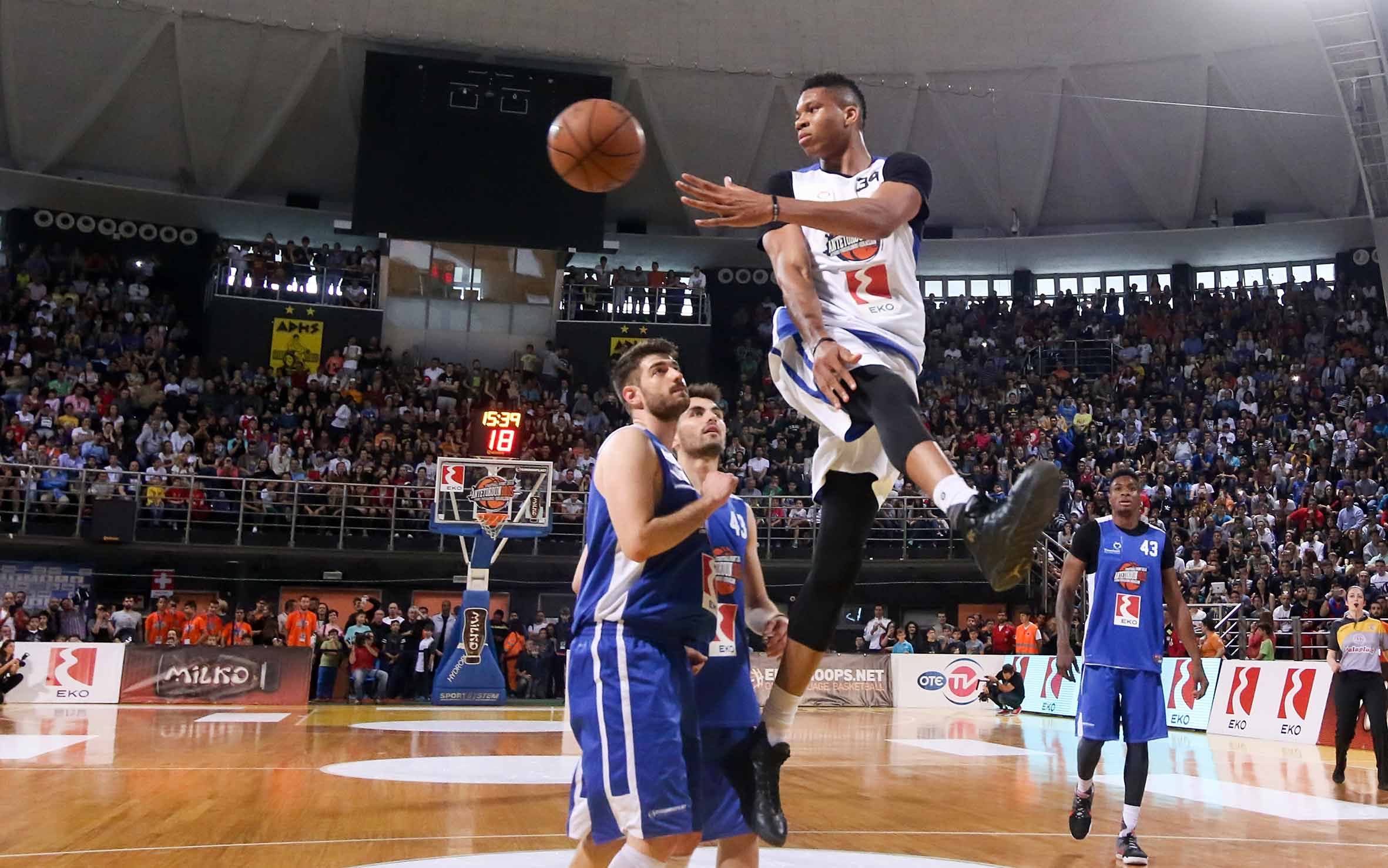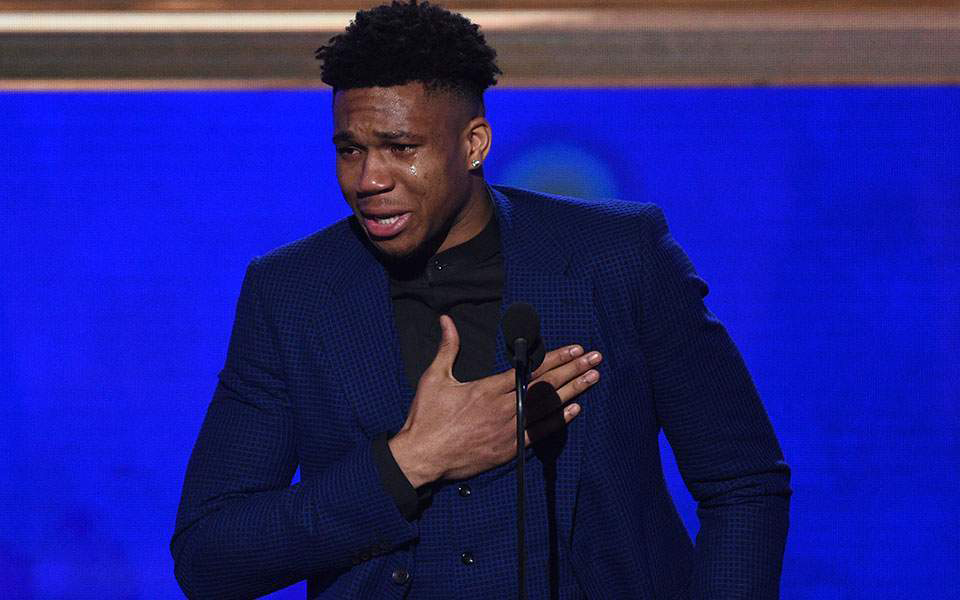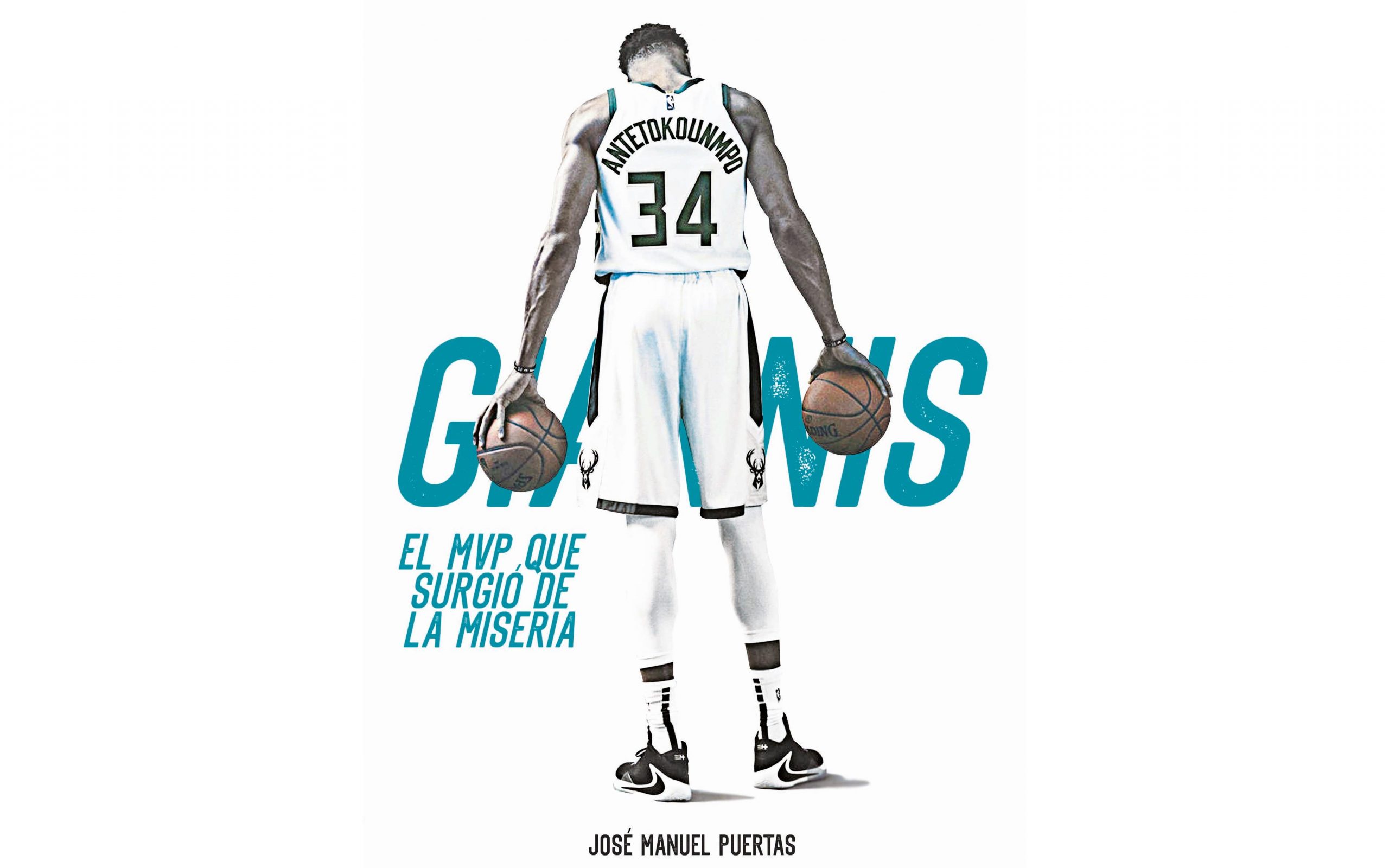Spanish sportswriter Jose Manuel Puertas' “Giannis Antetokounmpo: An MVP Born out of Misery” will by published by the end of the summer.
“El Magic Johnson heleno” is how Spanish basketball website Solobasket described the then 18-year-old Giannis Antetokounmpo after he was signed to Zaragoza on December 17, 2012. Following Magic Johnson’s recent praise of Giannis’ performance, that description could be characterized as being almost prophetic. In 2012, however, the bold comparison led many fans and sportswriters to deem it an exaggeration. Even Spanish sportswriter Jose Manuel Puertas was wary when reading the article, stating in an online interview that, “this is the first memory I have of Giannis, and I think most of the world would say the same.”
Since discovering the young player, Puertas has been closely following Giannis Antetokounmpo’s upward trajectory – beginning with his drafting to the Milwaukee Bucks, his multiple subsequent distinctions, and his life which changed overnight. Now 26, the basketball superstar appears to have lived two distinct lives: one beginning with his entry into the National Basketball Association (NBA), and another, his first life, which came before that. The latter was the basis for the Spanish author’s book, in which he states: “I think the story is impressive by itself. Personally, when I started writing the book, I was most excited when discovering what happened in Giannis’ first 18 years of life.”

Practising with Milwaukee Bucks in Paris in 2020.
© PanoramiC / InTime News
According to Puertas, “some people say that no 26-year-old deserves a biography,” and while he “can understand that,” he believes “this is a very special story because of everything that happened in [Giannis’] life,” adding that the manner in which he reached the NBA is a “story that needs to be told.” Puertas is not alone in this belief. Disney is currently in the process of filming a movie about Giannis’ life in Greece prior to joining the NBA.
Puertas’ biography is titled “Giannis Antetokounmpo: An MVP Born out of Misery” (“Giannis Antetokounmpo: el MVP que surgio de la miseria” in Spanish) and will be published on July 30, 2021 by Ediciones JC. The focus revolves around original interviews by the author with members of the Greek Freak’s – as American fans have taken to calling him – close entourage, alongside secondary material from newspapers and media, including interviews with the Greek athlete, his teammates and others close to him.
In the book are many recognizable names, such as coaches Spyros Velliniatis and Takis Zivas, family friends like Giannis Tsikas, former teammates Giannoulis Larentsakis and Christos Saloustros, but also Willy Villar, the sporting director of Zaragoza who saw Antetokounmpo’s athletic abilities in a videoclip, came to Athens, and despite never seeing him play in Spain due to his selection in the NBA draft, signed him to his team. The book follows Giannis from Sepolia, where he grew up in Athens, to the NBA, up to 2020, his second season being voted Most Valuable Player (MVP). The author, despite requests, was not able to contact Antetokounmpo’s family.

Giannis Antetokounpo was voted Most Valuable Player (MVP) in 2019 and 2020.
© Shutterstock
Through his book and analytical description of the Greek athlete’s early years, Puertas wanted to reveal the stories behind the individuals who first believed in Giannis’ abilities, but also the athlete’s own reservations and self-doubts regarding his future in basketball. Puertas claims that “in my opinion Giannis is not self-made, in the sense that he had the help of numerous individuals when growing up.” The author further notes that “of course [Giannis] had the talent, desire, and work ethic, but he needed the help of those around him to reach the place he is now… he was the key player, of course, but he did not do it all alone.”
For Puertas, one of the most crucial individuals in this story is the coach who discovered Giannis on the Sepolia courts. He believes that “Spyros Velliniatis (Giannis’ coach), who is now often, and unfairly, seen apart from the story, played an important role. Besides him, Takis Zivas and some more people helped him when he first began playing basketball.” In the book, Puertas describes a day in 2007 when coach Velliniatis saw the Antetokounmpo brothers, including Giannis, playing on the court of local team Tritonas, and immediately asked to speak to their parents. The coach, without authorization, pulled a bluff of sorts. He offered two work positions, which at that moment did not yet exist, to the children’s parents, in exchange for the eldest siblings, Thanasis and Giannis, beginning to train and play for Filathlitikos Basketball Club. Charles and Veronika Antetokounmpo accepted the offer, and immediately Velliniatis made inquiries with Giannis Smyrlis, the president of Filathlitikos, and found them two jobs.

An emotional Giannis Antetokounmpo receives NBA’s MVP award in 2019.
Significant sections of the book cover Giannis’ difficult upbringing. Readers get an inside look into the economic hardship of the Antetokounmpo family, which led the young athlete to often miss training sessions or worse, not be able to eat. One striking example from the book is that of Giannis’ first blood tests when he was 16. They revealed that he had the blood of a 70-year-old, and also an “extremely aged liver.” The author also exposes issues Giannis had regarding his residence status in Greece, racist abuse from the Golden Dawn political party which had him in their crosshairs, and the background competition for his citizenship between Greece, Nigeria and also Spain. The latter never made an official offer but it remained on the table, considering Giannis had signed a contract with Zaragoza.
Within the book there is also exploration of the athlete’s personal reservations regarding his future in the sport. Puertas states that while “the ‘official story’ says that Giannis fell in love with basketball from the first moment he played, this is not true… he played basketball but had doubts, he didn’t go to practice very often due to family problems, and during his earlier years he wanted to be a soccer player.” Puertas elucidates how, during one of Giannis’ lengthiest absences from training sessions, coach Velliniatis bought him Giannis Diego Maradona’s biography, hoping to teach him how to believe in his own abilities and reinforce his self-esteem.
Why then, did the major Greek teams never pay attention to him? For Puertas this is something “incredible and unbelievable considering that in Spain the top teams try to find all the new talent. In the end, however, I believe the best that could have happened to Giannis was to stay in Filathlitikos for his early years so as to get more playing minutes and have freedom on the court.”
Puertas’ biography concludes with Giannis Sina Ugo Antetokounmpo’s attempts to reconnect with his Nigerian roots. The author writes that the Greek Freak “wants to be much more than the Greek wonder,” and is currently trying to become better known in his country of origin, where “he still does not have a large impact since he never lived there, but he is in the process of getting there. He acquired a Nigerian passport and is trying to stay in touch with his Nigerian heritage. If he wins a championship, everything will be much easier.”
This article was previously published at ekathimerini.com.
Καλημέρα! Just landed in Athens. I’m happy to announce that @KaktosBooks just published the greek version of my book on the amazing path of @Giannis_An34.
I’ll let you know more! pic.twitter.com/w96PyHJaIE— Jose Manuel Puertas (@josempuertas) July 2, 2021









